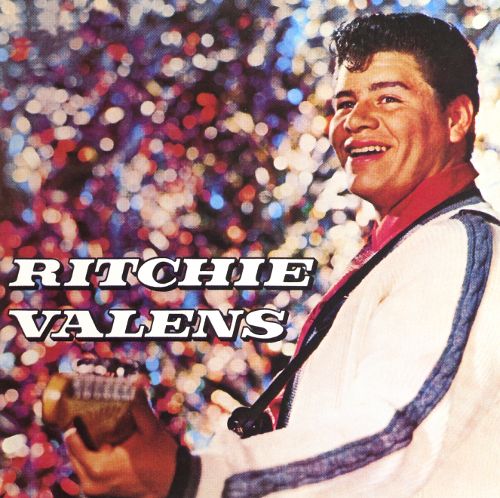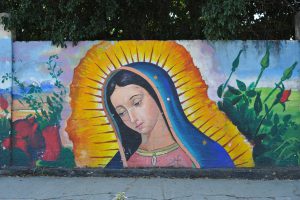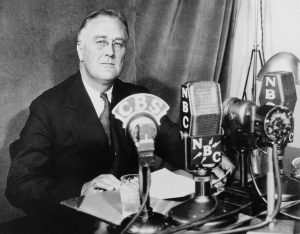It is the late 1950’s in southern California, and a young superstar named Ritchie Valens, whether he knows it or not, is about to change the culture of America forever. In a matter of eight months, the Hispanic student at San Fernando High School just became one of the biggest celebrity musicians of the day.1 After dropping out of school in order to record and tour full time, Richard Valenzuela was making phenomenal Rock N’ Roll music, both on stage and in the studio. While America quickly became obsessed with the undeniably talented teen, nothing could prepare them for his next release.
From the beginning, the odds were against young Richard. He was merely sixteen, and, as a young Latino, there were few opportunities for someone like him in the American mainstream music industry, let alone in Rock ’n Roll. He saw proof of this fact early in his career, facing prejudice and discrimination at every turn. He was even forced to change his name to Ritchie Valens in order to make it easier for his fans to pronounce—a compromise that gave way to controversy and anger from his family.2 Ritchie realized that, even though he was opposed to the changing of his name, it would be a smart move for him as a musician. But even after his family name was taken from him, he refused to let go of his heritage. In fact, it seemed that he tightened his grip.
Ritchie wanted to do something to pay tribute to his Latino culture. With the assistance of Bob Keane of Del-Fi Records, he decided he would combine the two worlds that he was now so heavily a part of, by turning the Spanish tune “La Bamba” into an upbeat rock song. Only knowing English, Ritchie had to learn the lyrics of the traditional Mexican folk song phonetically. After countless takes in the studio, he recorded the song on a two-track record with a second soon-to-be hit Oh, Donna.3
Ritchie released the track and promptly shook up America. Most people had no idea what the song was about, but, for one of the first times in modern music history, they didn’t care. The charismatic rhythm of the song combined with Ritchie’s unique voice; it was impossible to dislike it, and the song spread like wildfire, taking his career to new heights.
Seeing Ritchie perform was a spectacle only few Americans were graced with. His energy and impeccable guitar skills would engage the thousands of audience members from start to finish.4 While the crowd was swooning over every single song, there was nothing like that epic guitar riff that carries the tune of La Bamba.3 As soon as Ritchie’s guitar pick hit his strings, the fans simply could not contain themselves.

Unfortunately, Richard Valenzuela’s career was ended even quicker than it begun. Soon after his explosive rise to fame was sparked, and before he could finish his tour, Ritchie Valens was killed in a plane crash along with fellow artists Buddy Holly and The Big Bopper J.P. Richardson.6 The tragedy triggered nation-wide shock, and the day became known by many as “The Day The Music Died.”7
Although his life was ended much too early, perhaps it was this terrible fate that immortalized him in music history. His music and the rest of Valens’ amazing life inspired the film La Bamba, a timeless and classic film. Ritchie’s brave move in the release of “La bamba” inspired and enabled many other Hispanic artists to begin to make their way into the spotlight, making it much more than just a great song. We see the repercussions still today, through modern Latin Rock bands and all the sub-genres surrounding them, and will without a doubt continue to experience the fruits of the song for decades to come. Needless to say, American music and culture would not be the same without Richard Valenzuela’s audacious contributions.
- Encyclopedia of World Biography, 2004, s.v. “Ritchie Valens.” ↵
- Salem Press Biographical Encyclopedia, January 2017, s.v. “Ritchie Valens,” by Scot M. Guenter. ↵
- “‘La Bamba’ one of the 100 most important American musical works of the 20th century,” Broadcast Transcript. Weekend All Things Considered, NPR, July 15, 2000. ↵
- St. James Encyclopedia of Popular Culture, 2nd ed. “Valens, Ritchie (1941–1959),” Candida Taylor. ↵
- “‘La Bamba’ one of the 100 most important American musical works of the 20th century,” Broadcast Transcript. Weekend All Things Considered, NPR, July 15, 2000. ↵
- Robert Wright, “The Day The Music Died,” Aviation Safety, July 1, 2015. ↵
- “What Went Wrong On The Day Music Died?” Interview by Robert Siegel, Melissa Block, All Things Considered, NPR, February 3, 2009. ↵



163 comments
Olga Perez
Growing up in a Mexican-American household, I feel like this movie and song were almost a staple to our lifestyle, up there with watching “Sabado Gigante” and celebrating Christmas on the 24th instead of the 25th. Much like a lot of the other commenters, I had not realized that Richard had changed his name to better appeal to more of an audience, but it does kinda make me wonder if anything would have been different in the case of him not changing his name. Either way, I loved reading this article because you’re absolutely right about Ritchie being a pilgrim in Latin Rock. Some of my favorite artists, like Maná, Juanes, Ozomatli Carlos Santana, and Los Lobos might have had a harder time reaching their audience without Ritchie and, like you mentioned, his song for everyone.
Alexandra Cantu
Every time I have heard “La Bamba” I always pictured an older gentlemen. Never would I have guessed that the striking voice would be from a sixteen year old boy. This iconic song is heard throughout the American and Mexican community. It was a shame to know of his tragic accident. Who knows what the talented Ritchie Valens would have created. I really enjoyed reading about Richard Valenzuela.
Kayla Lopez
This article really stood out to me while browsing through the music articles. I think this was due to the fact that I have seen the movie La Bamba a million times. Despite this however, I did not know that Ritchie started his career when he was only sixteen years old. I agree that music in America and the culture here would not be the same without the contributions of Richard Valenzuela.
Lauren Castillo
The article was exciting a fun. It is a tragedy that he died so young after he did to succeed but at least he will never be forgotten. Such a good story I could almost hear the music. A song that never gets old by such a young boy. Too bad he had to go so soon imagine the effect he could have had.
Dayna Valdez
I can imagine waking up on a Sunday morning to this song while my mom cleans. It is one of those songs that never really gets old. Though it is very popular and I know it so well, I never really knew about who wrote it or the history behind it. I also find it surprising all the struggles that Ritchie Valens went through and overcame. Overall, It was a very good and well written article.
Matthew Rios
I always knew there was a wonderful story behind La Bamba. I remember at some point in high school, we watched a movie depicting the teen. I’m certain it was a pretty good film too. Good job though Joel. I think you did a good job of getting all the facts together here to paint a story, just like a film.
Eduardo Foster
Interesting article. I have heard La Bamba before but did not knew much of Ritchie Valens. It is amazing what he did in his life at such a young age. Dropping school in pursuit to become a professional musician. It is sad to heard how his lose his life but he will always be reminded with his song. Great article and keep it up with the good work!
Angela Rodriguez
Growing up, I used to watch the movie La Bamba, I never knew much about Richie Valens besides what was played on the movie. I enjoyed reading this article, to hear about the various struggles and accomplishments he went through which led him to become a famous singer. Also, I never knew Richie had to change his name, but I do know one thing for sure, his legacy will continue to live on for decades to come.
Troy Leonard
it is so unfortunate when people that have such a positive influence on people pass away so soon. it only makes you think what else could they have done if they were still alive. I’m glad that you put the video in the article because I couldn’t remember what the song was but as soon as I played it and immediately remembered what is was.
Alejandra Mendez
This article and the story it tells is most definitely a familiar story amongst Hispanic children. I, myself, having gone to a primarily bilingual elementary school, had this song memorized for school recitals. I wish he hadn’t changed his name however. I too have many people mispronounce my name daily, but I don’t think I would ever even consider changing my name. I also wish he hadn’t because Valenzuela is my grandmother’s maiden name so it only makes me wish he hadn’t changed it even more.